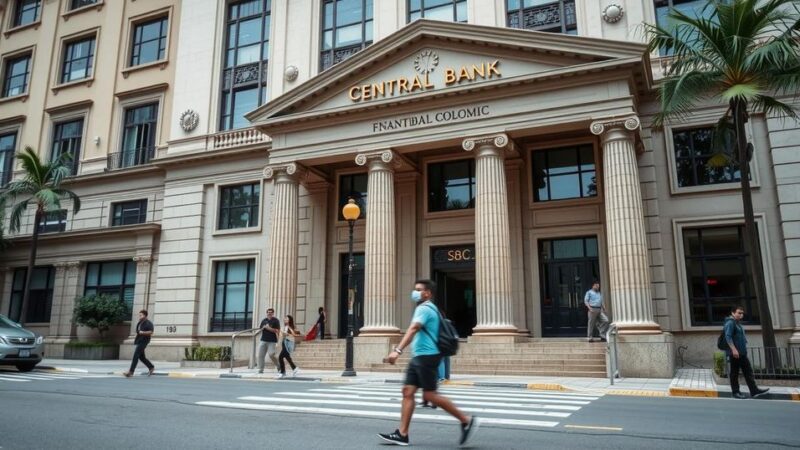The EBID is committed to sustaining financial relations with Mali, Niger, and Burkina Faso despite tensions within ECOWAS. Dr. George Agyekum Donkor asserted the Bank’s focus on financial responsibilities over political matters, highlighting timely repayments from these countries and the importance of ongoing partnerships.
The Economic Community of West African States (ECOWAS) Bank for Investment and Development (EBID) has expressed its dedication to sustaining its financial collaborations with Mali, Niger, and Burkina Faso, irrespective of ongoing political strains within ECOWAS. As these three nations, now part of the newly established Alliance of Sahel States (AES), contemplate a withdrawal from ECOWAS, EBID intends to preserve its partnerships with them. During the 89th Ordinary Session of the Bank’s Board of Directors on October 1, 2024, in Lomé, Dr. George Agyekum Donkor, EBID’s President, underscored the Bank’s strong financial ties with these Sahel-region countries. Dr. Donkor stated, “Concerning Sahel Alliance member countries such as Mali, Niger, and Burkina Faso, the Bank maintains strong commercial relations with them, despite political tensions.” He also highlighted the responsibility of these nations in meeting their financial obligations, noting, “Burkina Faso, for example, is up to date with its loan repayment obligations, and Niger has also begun to repay its debts.” Moreover, he emphasized that even if these countries choose to exit ECOWAS, their repayment duties remain unaffected, as EBID functions as a financial entity rather than a political one. This position mirrors the initiatives of Togo, which is actively promoting enhanced trade relations with Mali, Niger, and Burkina Faso, especially in customs cooperation. Founded in 1999, EBID boasts an authorized capital of $3.5 billion as of the end of 2023, with 70% held by regional entities from the 15 ECOWAS member states. The AES contributes to 6.29% of this capital, contrasting with Nigeria’s larger stake of 31.24%, along with Ghana and Togo at 15.71% and 3.43%, respectively.
The EBID plays a crucial role in financing and developing infrastructure across member states of ECOWAS. The current political climate in the region, marked by dissent within ECOWAS, especially arising from the activities of Mali, Niger, and Burkina Faso, poses challenges that could impact financial relationships. The formation of the AES signifies a shift in regional alliances, prompting financial institutions to reaffirm their commitment to maintaining relationships based on fiscal responsibility.
In summary, the EBID reaffirms its steadfast commitment to maintaining financial relations with Mali, Niger, and Burkina Faso amidst political turmoil within ECOWAS. Dr. Donkor’s remarks articulate the Bank’s focus on financial obligations independent of political affiliations, underlining the importance of continued cooperation for regional development.
Original Source: www.togofirst.com







